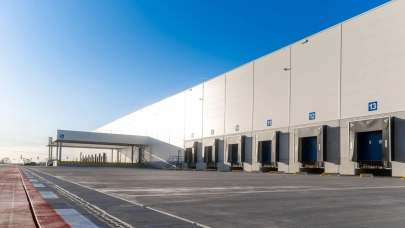
Solid economic fundamentals will be instrumental in the fast rebuilding of asset values in Poland. If they are not weakened by the country’s overregulation and fiscal policy, and the government temporarily helps entrepreneurs maintain liquidity, investor confidence in most commercial real estate sectors should fully recover by the end of this year, says Bolesław Kołodziejczyk, PhD, Head of Research & Advisory, Cresa Poland.
With the ongoing situation on global markets and in Poland, now is a time to reflect on the new economic order that will emerge once coronavirus social and economic restrictions are eased and the ultimate response of the commercial real estate market is fully known.
“Despite the continued uncertainty about the eventual scale and duration of global restrictions, investors with access to a large pool of liquid capital are likely to take advantage of many new opportunities available on the Polish market. Real estate, including commercial real estate, is among the few asset classes that remain a long-term safe haven in times of crisis. That’s why if we focus on the worst-case scenarios for too long, we could miss out on many attractive investment opportunities,” says Bolesław Kołodziejczyk, PhD, Head of Research & Advisory, Cresa Poland.
Naturally, financially agile investors and developers who maintain ample cash reserves and other liquid financial instruments will enjoy the upper hand. Lower interest rates will support M&A deals and acquisitions of properties that have a weaker capacity to generate long-term income and are unable to deliver to pay back for their acquisition or construction.
“When the situation stabilizes, a realignment of vendors’ expectations will become a fact, which may result in more investment deals. Also, many development projects will require a new strategic approach with repositioning or even repurposing. This, in turn, will reveal who has been cautious in risk management and is able to respond quickly and flexibly to changing market conditions. Overseas investors relying on foreign currency funding will benefit,” adds Bolesław Kołodziejczyk.
Office landlords now have an opportunity to retain their current tenants through lease renegotiations with an option to extend lease terms. Some new office projects may attract tenants from rapidly growing sectors, particularly IT and e-commerce. Developers will have to step up their efforts to gain new tenants and to come forward with more attractive rental rates or additional discounts wherever permitted by construction costs. Whether smaller tenants will revert to using coworking spaces more, thereby helping coworking providers maintain an appropriate level of profitability, remains in question. There is no doubt that coworking spaces are still the best option for tenants looking for a prestigious address.
Warehouse demand is being driven by e-commerce, which is benefiting logistic operators and courier and delivery companies. Food and pharmaceutical companies remain very active. Many retailers are already planning to diversify their business risk in case similar economic developments occur and to go online with some operations. The current situation is a learning experience for consumers who are adapting to online shopping, which will boost demand for modern warehouse space in the long term. This, in turn, will further accelerate the transformation of existing retail schemes so that they can best respond to consumer needs. Supply chain diversification and bringing manufacturing closer to consumer markets by international corporations can be a big opportunity for the warehouse and industrial market. Poland is in the top tier in the race to attract such investors.
Opportunities will be plentiful in the hospitality sector, where rebuilding high occupancy rates and income levels will be slow albeit steady. There is no escape from globalisation. People want to travel both on business and for leisure, and they will do so evermore. Unfortunately, many facilities may be closed down or may change hands. Individual hotels will continue to transform into branded hotels of large chains as non-chain hotels account for nearly 70% of the Polish hospitality market. International brands with strong capital positions and structures will hate to miss out on such opportunities.
To sum up, Poland will remain an attractive commercial real estate investment destination, albeit smaller regional cities will experience a weaker growth in values.
“Leading investors think long term rather than short term. The current situation is an opportunity for the most agile market players. If there is a temporary dip in property prices, investors seeking long-term profits will stand a chance of earning high rates of return in the future. Solid economic fundamentals will be instrumental in the fast rebuilding of asset values in Poland. If they are not weakened by the country’s overregulation and fiscal policy, and the government temporarily helps entrepreneurs maintain liquidity, investor confidence in most commercial real estate sectors should fully recover by the end of this year,” says Bolesław Kołodziejczyk, PhD, Head of Research & Advisory, Cresa Poland.



